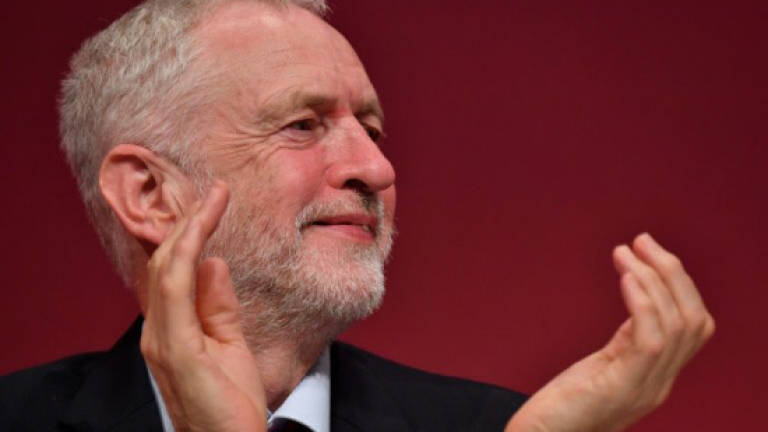UK Labour mobilises to push Corbyn into power

BRIGHTON, United Kingdom: In a former church, 40-odd activists are learning how to become effective frontline troops in the battle to sweep Labour opposition leader Jeremy Corbyn into power.
"The next campaign is already going on," said 19-year-old Connor Hodgson-Brunniche, a student at York University, who came down especially from northern England to the south coast resort of Brighton, where Labour is hosting its annual conference.
The trainees are taking their task seriously, even though the next general election does not have to be held until 2022, following a June snap poll in which Prime Minister Theresa May's governing centre-right Conservatives lost their majority but remained the largest party in parliament.
Those on the course are learning how to deliver positive messages, speak effectively in front of the media, make the best use of social media and draw in new recruits.
Following the June vote, which saw left-of-centre Labour take seats off the Conservatives, the campaign is out to "take the momentum that we got during the election ... and expand it to be able to reach even more people," said Hodgson-Brunniche.
The political-science student joined Labour in 2015, when veteran leftist Corbyn surprisingly swept to power on a wave of newly signed-up supporters.
Around 100 debates, lectures, workshops or musical events, often packed out, are part of the political and cultural festival titled "The World Transformed", taking part on the Brighton conference fringe.
TWT is organised by Momentum, the political movement born out of the campaign to sweep Corbyn, 68, to the party leadership.
"Momentum have opened up the party so people don't have to be political animals before they become activists," said Justine Cooper, 55.
Peaceful revolution
Initially accused of being a cadre of Trotskyists, Momentum have quickly gained a lot of influence within the Labour Party. They have more than 23,000 members and 150 local branches.
They notably convinced delegates to keep Brexit off the list of topics set for debates and votes on the Brighton conference floor.
"It's a peaceful revolution," said Jamie Driscoll, a Momentum training coordinator.
A short distance from the church, in a meeting room, activists discuss politics while others take part in a workshop to come up with rallying slogans or buy red badges sporting leftist messages.
"Our job now is to be working every day to campaign against the Tories ... until we win," via meetings, social media and door-knocking, said Cameron Ball, a TWT spokesman.
Steven Fielding, a professor of political history at Nottingham University, described Momentum as "a very efficient Corbyn fan club".
Corbyn's re-election as Labour leader in 2016 – when the vast majority of his MPs lost confidence in his leadership – was in no small part down to Momentum's enthusiastic campaigning.
Now Corbyn, who can claim to have tripled Labour's membership to 570,000 in two years, seems secure in his post following the June general election, when his campaign focused on anti-austerity defied predictions of a landslide defeat.
In some opinion polls, Labour are now ahead of the Conservatives.
"The election has changed politics in this country," Corbyn said in a recent interview with The Guardian newspaper.
Risk of over-confidence
Even some on the right are not ruling out the left's chances of coming to power.
It could come to pass if the government cannot overcome its divisions on Brexit, said former foreign secretary and Conservative ex-leader William Hague.
The Economist magazine considers Corbyn as "Britain's most likely next prime minister".
Professor Fielding said it was "more than possible" that Corbyn would end up in power if there was another general election within the next 12 months.
But there is a risk of over-confidence.
"We forget that he lost the general election and the conduct (of the campaign) on the Tory side was so poor it's hard to believe that could be repeated," said Iain Begg, a professorial research fellow at the London School of Economics university's European Institute.
"Britain is ultimately quite a conservative country," he added.
Corbyn is particularly popular with students and young graduates, but they are heavily concentrated in urban parliamentary seats and university cities, Fielding said.
Corbyn needs to reach out to older and more traditional Labour supporters in areas that backed Britain leaving the European Union in order to win enough seats to overtake the Conservatives, Fielding added. — AFP